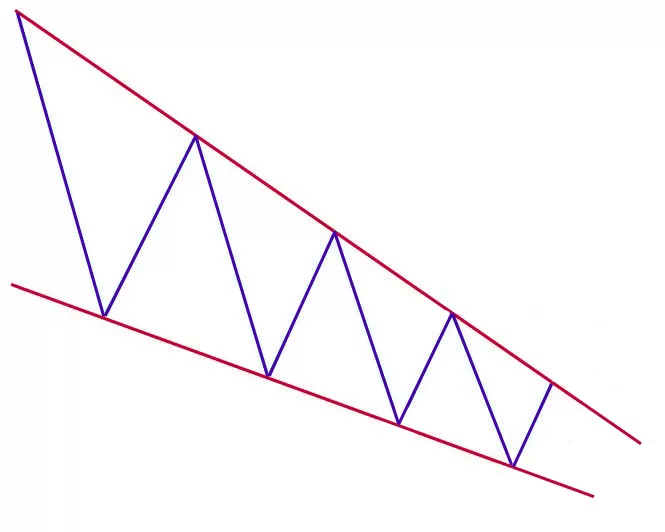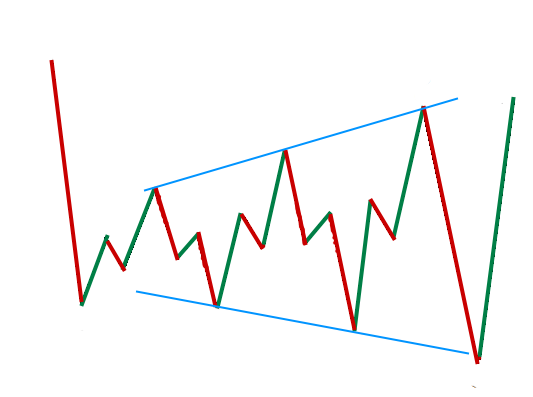Technical analysis is a crucial tool for traders to predict future price movements based on historical data. One popular chart pattern that traders often rely on is the rectangle pattern. In this article, we will delve into the details of the rectangle pattern, its characteristics, and how it can be effectively traded.
What is a Rectangle Pattern?
A rectangle pattern is a classical technical analysis pattern that occurs when the price of an asset moves between horizontal support and resistance levels. The pattern resembles a rectangle formed by these parallel levels. It signifies a period of consolidation or indecision in the market, where buyers and sellers are evenly matched and take turns exerting influence.
The main characteristic of a rectangle pattern is that the price repeatedly tests the support and resistance levels before eventually breaking out of the pattern. This breakout can result in a new trend in the direction of the breakout, either upwards or downwards. Traders use the rectangle pattern to identify potential trading opportunities and make informed decisions based on its formation.
Identifying the Rectangle Pattern
To identify a rectangle pattern, traders must examine price charts and look for distinct horizontal support and resistance levels. These levels should be tested multiple times over a specific period, creating a clear rectangular shape on the chart. The more times the price tests these levels, the stronger the rectangle pattern becomes.
It’s important to note that the duration of a rectangle pattern can vary. Some patterns may form quickly within a short span of time, while others may develop over an extended period. Traders should be patient and wait for a clear breakout before entering a trade.
Trading the Rectangle Pattern
There are two primary strategies for trading the rectangle pattern: trading within the pattern and trading the breakout.
1. Trading Within the Pattern
Trading within the rectangle pattern involves buying near the bottom support level and selling or shorting near the top resistance level. Traders aim to profit from the price oscillations within the pattern. They set stop-loss orders just below the support level to mitigate potential losses if the price breaks down.
2. Trading the Breakout
Alternatively, traders can wait for a breakout from the rectangle pattern before entering a trade. A breakout occurs when the price moves decisively above the resistance level or below the support level. This breakout signifies a potential trend reversal or continuation, depending on the direction of the breakout.
To trade the breakout, traders can enter a long position if the price breaks above the resistance level or a short position if it breaks below the support level. Stop-loss orders should be placed to manage risk in case of a false breakout.
Measuring the Rectangle Pattern
The measuring principle is a useful tool for determining potential price targets after a breakout from the rectangle pattern. Traders can estimate the minimum target by measuring the height of the pattern and adding it to the breakout level for an upside breakout or subtracting it for a downside breakout.
For example, if the height of the rectangle pattern is $10 and the breakout level is $50 for an upside breakout, the minimum target would be $60. This target provides traders with an objective point to exit the trade. However, it may take a while for it to reach the target. That’s why Patience should be every trader’s bestie.
Limitations and Considerations
While the rectangle pattern can provide valuable insights and trading opportunities, it is not foolproof. Traders should be aware of some limitations and considerations when using this pattern.
False breakouts can occur, where the price breaks out of the pattern but fails to sustain the move. Traders can employ additional indicators or confirmation signals to validate breakouts before entering a trade.
Moreover, the rectangle pattern may not always conform to perfect horizontal support and resistance levels. The price may exhibit slight deviations or exceed these levels temporarily. Traders should focus on the overall pattern and its characteristics rather than getting fixated on exact price points.
Conclusion
The rectangle pattern is a popular chart pattern in technical analysis that indicates periods of consolidation or indecision in the market. Traders can effectively trade this pattern by trading within the range or waiting for a breakout.
The measuring principle provides a useful tool for estimating price targets after a breakout. However, traders should be mindful of the limitations and false breakouts that can occur. By understanding and utilizing the rectangle pattern, traders can enhance their trading strategies and make more informed decisions in the market.
Remember, successful trading requires technical analysis, risk management, and continuous learning. As with any trading strategy, it is essential to practice and adapt based on market conditions.
Have you refined your Trading skills? Get an account of $100k with Funding Pips and receive up to 90% of the Profit.
- 8 Best Prop Firms USA: Real trader Reviews and Payouts - March 10, 2025
- Forex Trading in Uganda: Start With $10—An Incredible Opportunity on a Tight Budget! - February 24, 2025
- Master Forex Trading Algorithms: Your Path to Success in 2025 - February 17, 2025








